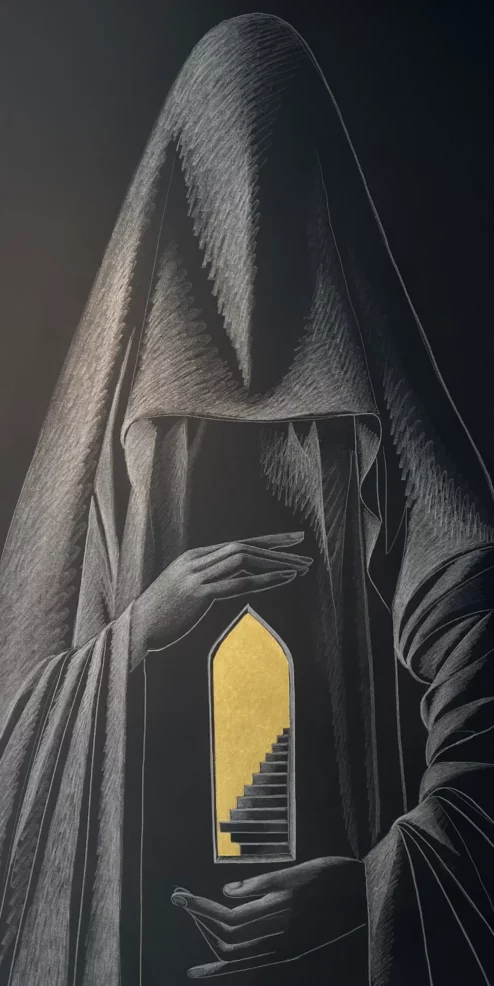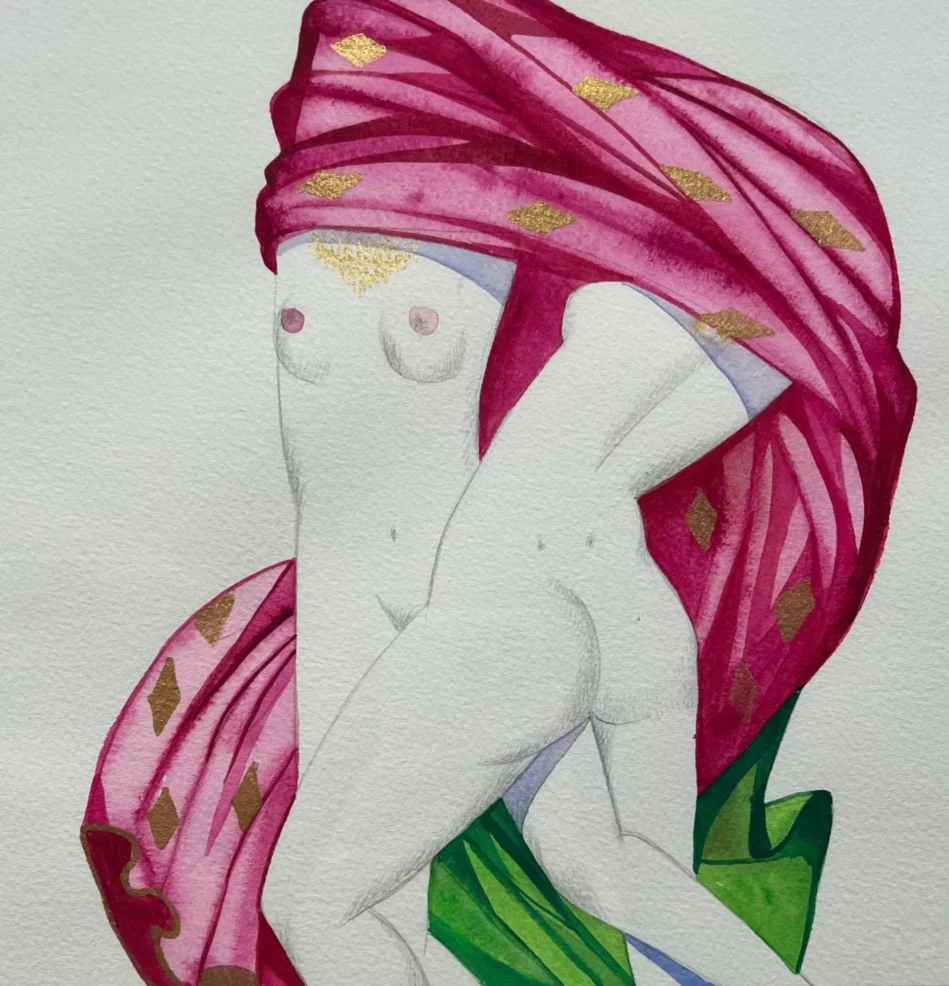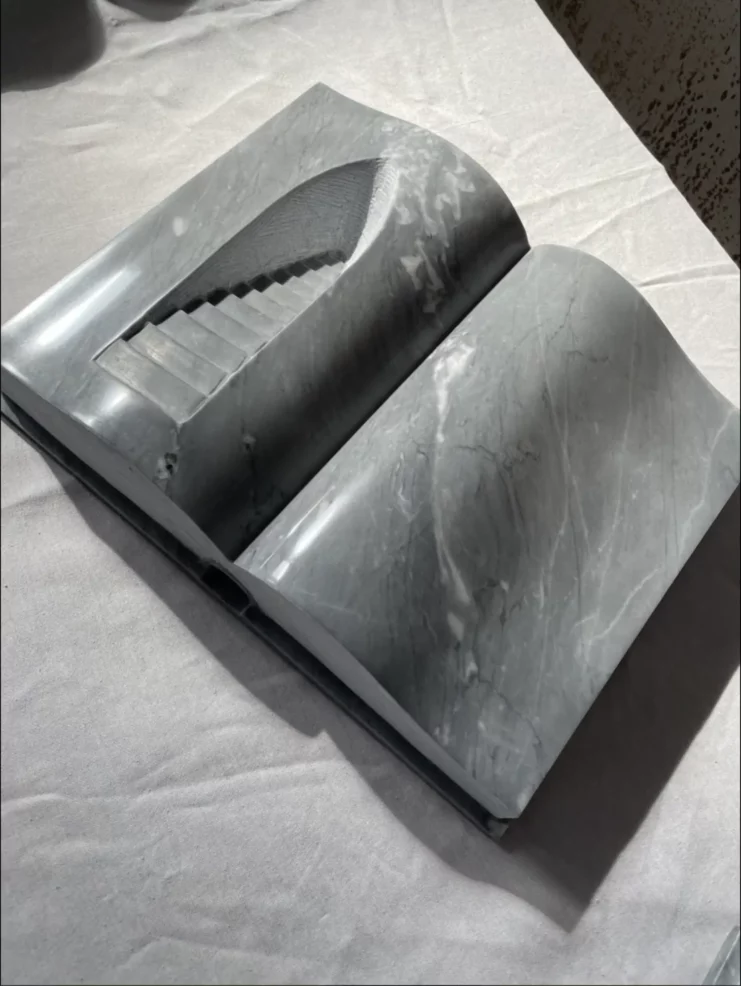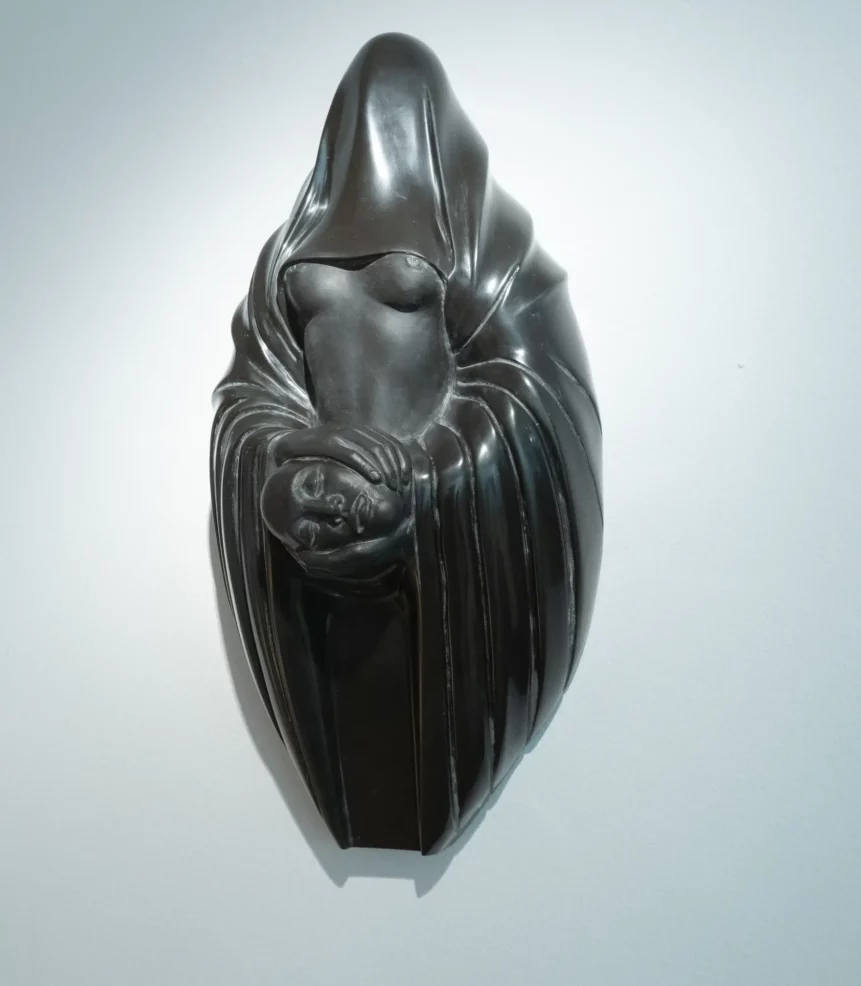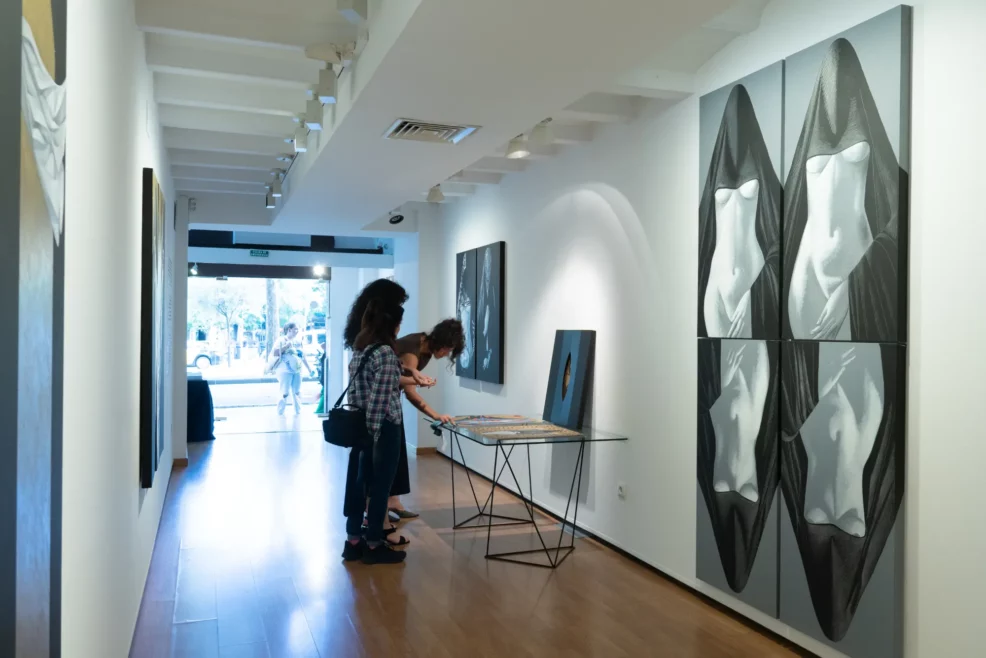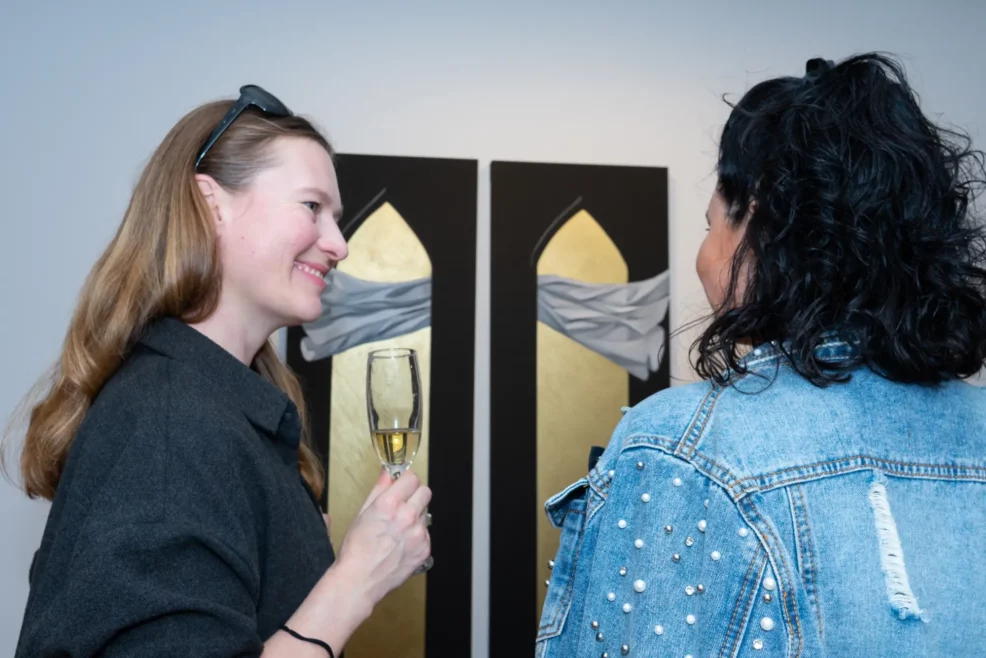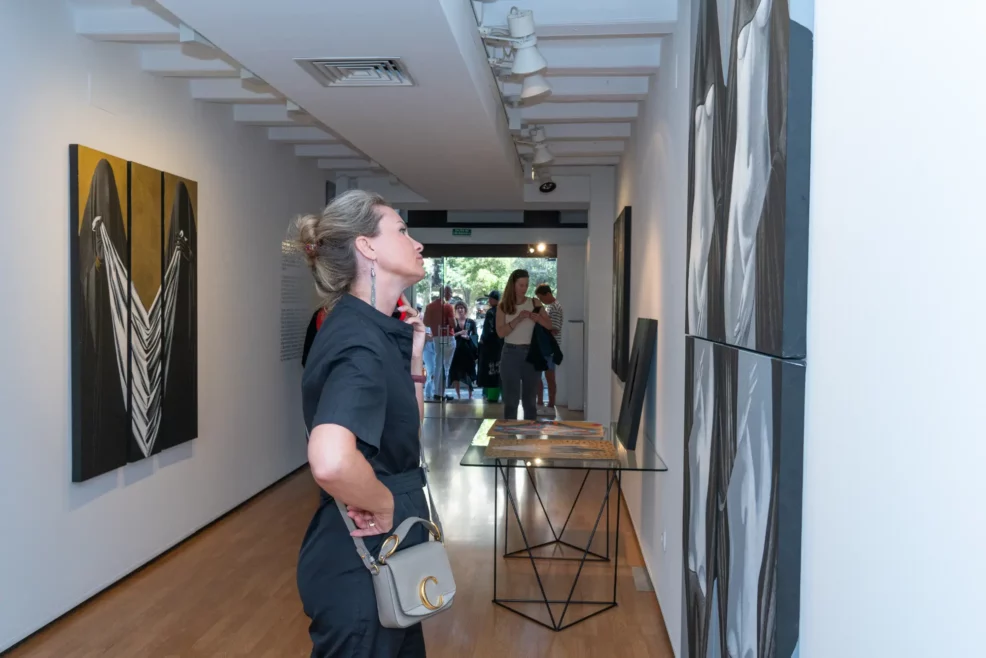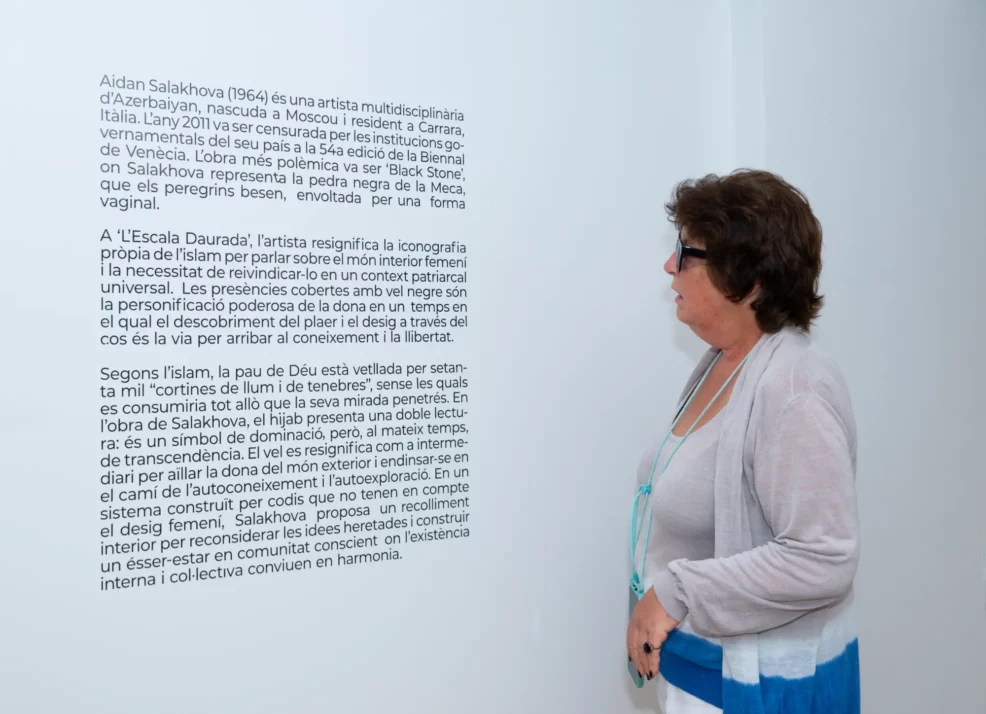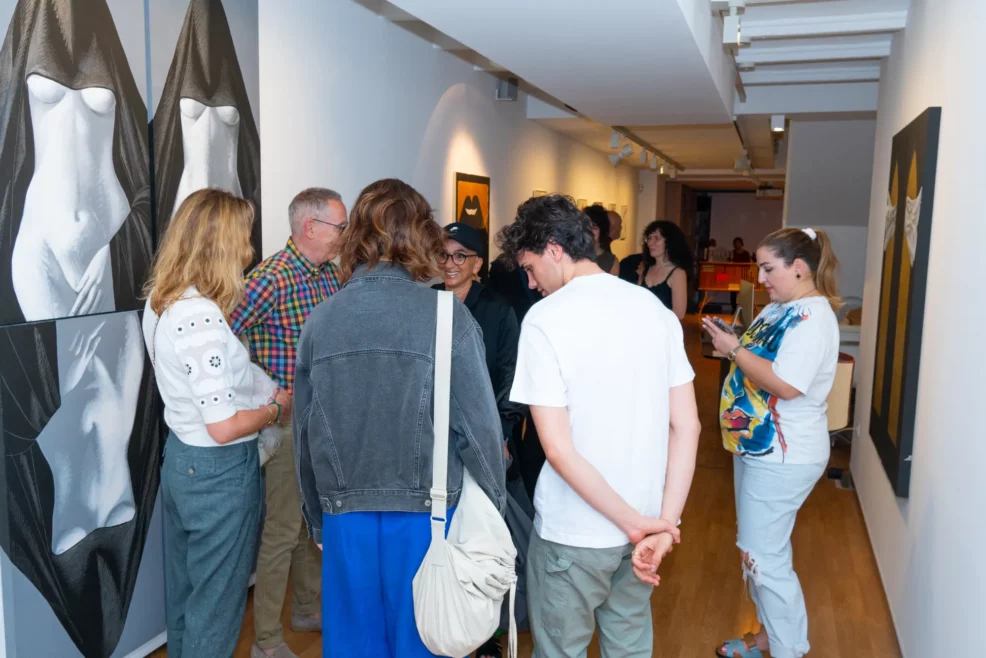Exposición
The Golden Scale
Aidan Salakhova
8 June - 21 July 2023
Aidan Salakhova (1964) is a multidisciplinary artist from Azerbaijan, born in Moscow and living in Carrara, Italy. In 2011, she was censored by her country’s government institutions from the 54th edition of the Venice Biennale. Her most controversial work was ‘Black Stone,’ in which Salakhova depicts the black stone of Mecca, which pilgrims kiss, surrounded by a vaginal shape.
In “The Golden Scale,” the artist redefines Islamic iconography by addressing the feminine inner world and the need to reclaim it within a universal patriarchal context. The black-veiled figures are powerful embodiments of women in a time when the discovery of pleasure and desire through the body is the path to knowledge and freedom.
According to Islam, God’s peace is veiled by seventy thousand “curtains of light and darkness,” without which everything her gaze penetrates would be consumed. In Salakhova’s work, the hijab presents a double meaning: it is a symbol of domination, but, at the same time, of transcendence. The veil is reinterpreted as an intermediary to isolate women from the outside world and embark on the path of self-knowledge and self-exploration. In a system constructed by codes that ignore feminine desire, Salakhova proposes an inner retreat to reconsider inherited ideas and build a conscious community of being, where internal and collective existence coexist in harmony.
Aidan Salakhova
Aidan Salakhova (b. 1964, Moscow, Russia) is a prominent Russian artist of Azerbaijani descent.
In 1987, he graduated from the Surikov Moscow State Institute of Fine Arts. In 1992, he founded the Aidan Gallery in Moscow, one of the most prestigious private galleries of modern and contemporary art in Russia.
Her artistic practice encompasses painting, sculpture, photography, and installation, with a focus on themes of gender, sexuality, and the intersection of Eastern and Western cultures. Her work explores the role of women in Islamic societies, addressing issues such as prohibition, esotericism, and beauty.
Throughout her career, Salakhova has participated in prestigious international biennials and fairs, such as the Venice Biennale in 1991 and 2011, as well as the Second Moscow Biennale of Contemporary Art in 2007. Her works are part of important collections, including the State Tretyakov Gallery, the Moscow Museum of Modern Art, and the François Pinault Foundation.
In 2011, at the 54th Venice Biennale, her work gained notoriety when two of her sculptures, including Black Stone , which depicted the Kaaba in a vagina-like frame, were covered up and removed from the Azerbaijan Pavilion by government order.
In addition to her artistic work, Salakhova has contributed to arts education as a professor at the Surikov State Institute in Moscow since 2000 and was elected to the Russian Academy of Fine Arts in 2007 after being awarded the institution’s silver medal.

